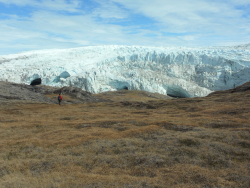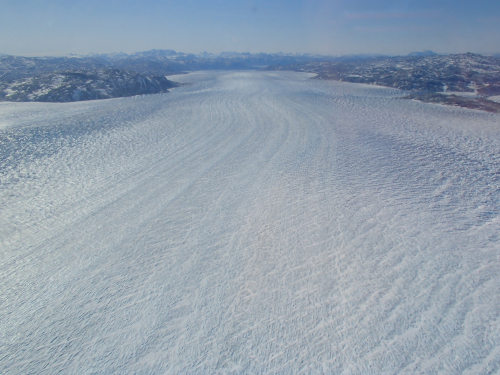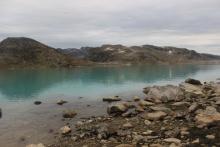What Are They Doing?

The research team applied complimentary techniques to both the preserved plants and rocks exposed at the foot of retreating glaciers in West Greenland. Radiocarbon-dating techniques were applied to the plants and the isotopic signature of recently exposed rock surfaces were determined, allowing researchers to determine the duration of ice-covered and ice-free conditions throughout the Holocene (the past 11,700 years since the end of the last major ice age). Combined, these two datasets explicitly date when the region was last as warm as present. Comparing climate reconstructions with on-going studies elsewhere will help to further define recent abrupt climate changes.
Where Are They?

Latest Journals

Jason Briner is an Associate Professor of Geology at the University at Buffalo. Born in Seattle, with geology degrees from the University of Washington, Utah State University and the University of Colorado, Jason has taken geology courses all over the western US. His research focus is on the glacier and climate history of the Arctic, and has ongoing research projects in Alaska, Arctic Canada, Greenland and Norway. Jason is the director of the Paleoclimate Lab at the University at Buffalo, which specializes in using lake sediment records, glacial geology, and geological dating techniques like radiocarbon and cosmogenic nuclide exposure dating. With the help of both graduate and undergraduate students, Jason's interests are to reconstruct glacier responses to past climate events in recent Earth history to help understand the sensitivity of glaciers to climate change. Read more about Dr. Biner's research here.




